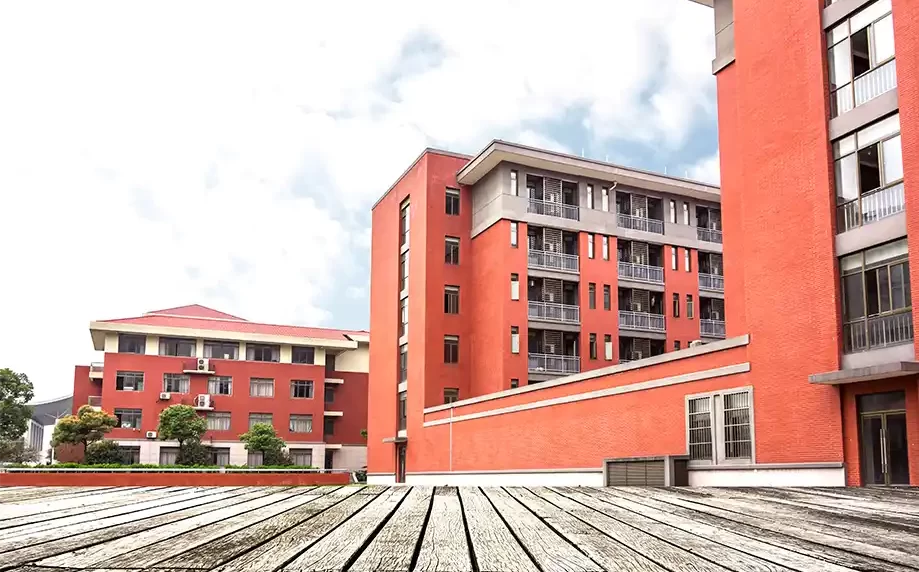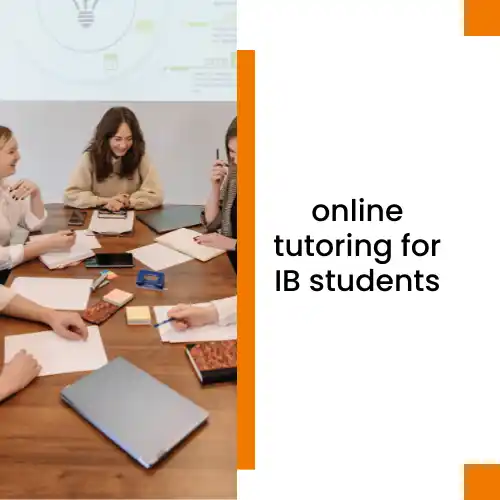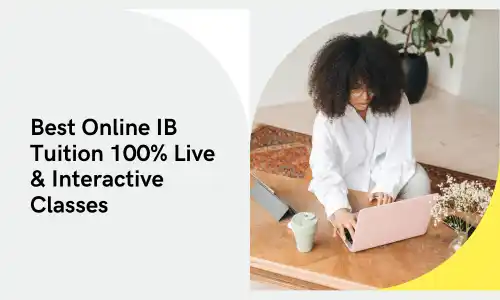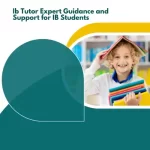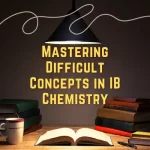Types of curriculum change -Transition to International Baccalaureate (IB)
Changing the curriculum from the middle to high school is a happening scenario in India amongst the K-12 student parent community- where we see different types of curriculum ranging from the national boards CBSE, ICSE to the international boards like Cambridge International and the International Baccalaureate. In fact, some of the schools in India are hosting the national and international curriculum parallel in multiple academic wings. While the transition from the national curricula to the International Baccalaureate is a trend, the shift is imperative to pose a concern amongst the parents on the difficulty level of transition. Now the probable questions here are: why is the change of curriculum gaining attention, whether the transition is seamless, and whether the transition is worthy.
As a curriculum analyst I have been encountered with many questions on the transition from one curriculum to another either in grade 9 or grade 11. Also, the transition is usually seen from a national curriculum to an international one- specifically speaking from CBSE to IB. The frequently asked questions on a curriculum transition at the crucial phase of a student’s career, made me throw light on the need for the change of curriculum from CBSE to IB, the seamlessness of the shift between curricula, and the worth of the transition to the International Baccalaureate.
Contents
Types of curriculum change -Transition to International Baccalaureate (IB) 1
Transition from CBSE to IB.. 2
Role of parents, teachers, schools, and counsellors. 3
Transition from CBSE to IB-is it worth?. 4
Why choose IB?
Why choose IB? – is one of the most common questions on the NRI parents association forum. Initially the IB was meant for the children of the country diplomats managing their profession through global transitions. With globalization there emerged an urge for uniform knowledge sharing. Transiting from abroad studying the country specific curriculum to CBSE, is a sheer challenge for students. The challenge of transition is being exposed to the culture shock, pedagogy difference, and difference in the assessment pattern. Hence, it would be far more comfortable, practical, and meaningful for students to embrace a curriculum which is globally recognized. In true sense, a curriculum with a student-centric pedagogy and a significant assessment evaluating learning and life skills, would be the most rational decision. With IB, the students get an opportunity to study a curriculum which has uniformity in aligning its approaches to teaching and learning with the global standards. Also, they get to nurture the attitudes and aptitudes at par with the IB learner profile. The IB learner profile centres round learners to become inquirer, knowledgeable, thinker, compassionate, principled with academic honesty and integrity, open-minded in respecting other’ opinions, caring, risk taker, holistically balanced, and critically reflective on own strengths and areas of improvement. The inculcation of such attitudes, aptitudes, and skills create a gratifying experience for any student exploring career opportunities worldwide. Hence, what is meaningful here is to study the best-fit global curriculum, the International Baccalaureate, which has already spread its wings across 156 i.e. 80% major countries in the world.
Transition from CBSE to IB
The switching or transition from CBSE to IB is not at all a challenge. If you look into the intrinsic mind set of a student, any student for that matter would be keen to explore. Yes, I agree that the attitude of inquiring sharpens with exposure to the learning environment. In fact, there are many schools which have a meaningful learning environment in spite of being a national curriculum accredited one. They might be working with a blended or hybrid model framework, having a customized curriculum as the best blend of many curricula across the world. Till grade 8, these schools might be able to personalise learning instruction. However, the customized personalized learning approach is often shaken with a sudden brake in grade 9, for this is the time where students get to stick to one particular curriculum and its assessment criteria for the sake of the board exam. This is exactly where the confusion in an explorative mind starts.
A student relocating to India from abroad in the primary or middle school might have adjusted well to the hybrid model, but might face a challenge in grade 9 with the traditional pattern of assessment. In grade 9 it is unjust to expect that a student who has been explorative all this while, suddenly doing well in a question paper based on crammed up theories. This is exactly where the curriculum choice matters and if required, a change in curriculum.
With the values and principles underpinning the International Baccalaureate pedagogy, its approaches to teaching and learning; the IB assessment is in perfect sync with its methodology. Hence, even if a student moves from a hybrid model or any curriculum for that matter to the International Baccalaureate in grade 9 or even in grade 11; it will not be a discomfort to the student. It is truly because the student is moving to a very student friendly curriculum and methodology of learning which is close to the heart of any learner. You may ask that why the IB methodology is perceived as student friendly? It is because there is immense scope to learn every subject without cramming up, to conceive how the concept is relevant in real world, and to be assessed on problem solving skills in looking at the concept through different perspectives. Hence, the knowledge constructed by the student is not theoretical but empirical.
Role of parents, teachers, schools, and counsellors
True that if the student transiting to the IB Diploma Programme in grade 11, the role of parents, teachers, schools, and expert counsellors is momentous. The four stakeholders should be on the page in understanding and explaining the IB programmes. They need to orient the student that IB is a curriculum with a unique methodology, which is tailored for students to critically reflect on interconnectedness with the world through local and global contexts. Counsellors should speak about the inquiry based, conceptually focused, conceptualised, collaborative approaches to teaching. The IB approaches to teaching (ATT) is very personalised with differentiated IB resources like content, methods, tools, that are specific as per IB syllabus to the needs, interests and aptitude of each student. Surprisingly, the differentiated instruction can be made subjective to each student because of the low teacher student ratio to be maintained for the International Baccalaureate. The International Baccalaureate approaches to learning (ATL) focusing on thinking, social, communication, research, and self management skills are, in fact, the most cherishing and engaging learning skills for any student. The research skills centring round in-depth independent critical thinking and collaborative learning help a successful manifestation of theory to real life contexts. Nothing can be more meaningful for a student who is given the freedom and charge to set own goals, manage time, and organize planners. Also, the IB programmes are very broad and balanced. Broad in terms of width and depth, where every concept learnt would be evaluated through real world lens. Each IB programme is holistically balanced in terms of intellectual acumen, social intelligence, physical wellness, and emotional balance application. Hence, even if it is in grade 11 the transition from CBSE to IB is not challenging for a student, for he or she would be exposed to a student –centric learning environment through which education would not just be confined to subject limits but also have its application in real life. The crux here is developing the student’s attitude, interests, aptitudes, and skills to carve out a holistic personality. When the true essence is infusing skills which are designed in the best interests and needs of students, where is the stress and challenge?
Transition from CBSE to IB-is it worth?
The IB Diploma Programme exposes students to the six subject groups: Studies in language and literature, Language acquisition, Individuals and societies, Sciences, Mathematics, The arts. There is a wide flexibility of combinations for the choice of six subjects. Mathematics is compulsory for IB Diploma. As the IB Diploma Programme students, you must choose one subject from each of the five groups (1 to 5). The sixth subject is where you get to choose either an arts subject from group 6, or a second subject from groups 1 to 5. At least three and not more than four subjects are taken at higher level or HL (240 instruction hours), while the other subjects are taken at the standard level or SL (150 instruction hours). The IBDP Programme is very unique with its six subject groups and its Core. The IBDP Programme compulsory core is a combination of Theory of Knowledge (TOK), Creativity, Activity, and Service (CAS), and Extended Essay (EE). Through TOK the construction of knowledge, its interpretation, contestability of knowledge claims helps you to critically evaluate knowledge in various subjects. While Theory of Knowledge or TOK is all to do with ‘how to know what to know’, CAS deals with creativity, activity, and service, EE is a 4000-word research work preparing students with research tools like research methodologies and citation.
You can study and take your IB Diploma Programme exam in either English, French or Spanish-the three languages in which the IB exam papers are published.
In IB Diploma Programme two IBDP subjects like Literature and performance (group 1 and group 6), Environmental systems (group 3 and group 4) are interdisciplinary to suffice to its positioning in either of the groups from which you may select. The IB courses are:
Group 1 – Studies in language and literature
Language A: literature – 55 languages offered
Language A: language and literature – 16 languages offered
Literature and performance (also group 6) – 3 languages offered
Group 2 – Language acquisition
Language B –23 languages offered
Language ab initio –12 languages offered
Classical languages – 2 languages offered
Group 3 – Individuals and societies
– Business and management
– Geography
– History
– Information technology in a global society
– Philosophy
– Psychology
– Social and cultural anthropology
– World religions (SL only)
– Environmental systems and societies (also group 4)
Group 4 – Sciences
– Biology
– Design technology
– Environmental systems and societies (also group 3)
– Physics
– Computer science
– Sports, exercise and health science (SL only)
Group 5 – Mathematics
– Mathematical studies SL
– Further Mathematics HL
– Mathematics SL
– Mathematics HL
Group 6 – The arts
– Music
– Theatre
– Visual arts
– Dance
– Film
– Literature and performance (also group 1)
Looking at the diverse choice of combinations of the IB courses you can well understand that even if you are specialising in sciences, you would be exposed to one of the social sciences like economics concerned with real life activities. The wide range of subjects in IB courses make you a strong learner to take up futuristic course works like data science, business analytics, artificial intelligence, and so on. There would be some of you who are equally focused in some co-curricular and find challenging to manage your calendar. With the IB online option, you can enrol in a range of authorized DP courses online offered via their IB World School through Pamoja Education Ltd.
Career options in India for IB
Many parents mull over that whether it is wise and worth to shift from CBSE to IB. The reason behind is the compatibility and sustainability of the IB programme in the Indian educational context. Many parents are unsure whether IB Diploma Programme serves as a college and career readiness for Indian universities or not. This is where the expert guidance matters. Take a look at the IB guide to university recognition in India
https://www.ibo.org/contentassets/d883e8b8f46446079f14679a9a6971c3/india-recognition-guide-jan-2017.pdf. The IB curriculum is globally recognized.
The earlier discussion clearly evinces that the International Baccalaureate is a curriculum and methodology which prepares you for a bigger picture, not just making you ready for academic races. What is more important to understand is the ethical, cultural values and affective skills which are infused by the IB curriculum. I would also reinforce on the inculcation of skills for exploring futuristic careers. In order to instil transferable skills in you like independent research, time management, awareness in resource allocation, financial literacy, cultural competence, stress management, assertiveness, passion, perseverance, and teamwork- you need a holistic development. It is the holistic development which infuses the whole being in you, the individuality with core values like respect, ethics, etiquette, empathy, and integrity instrumental in ‘making the world a better and peaceful place’.
